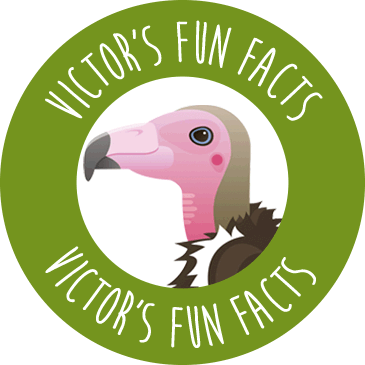
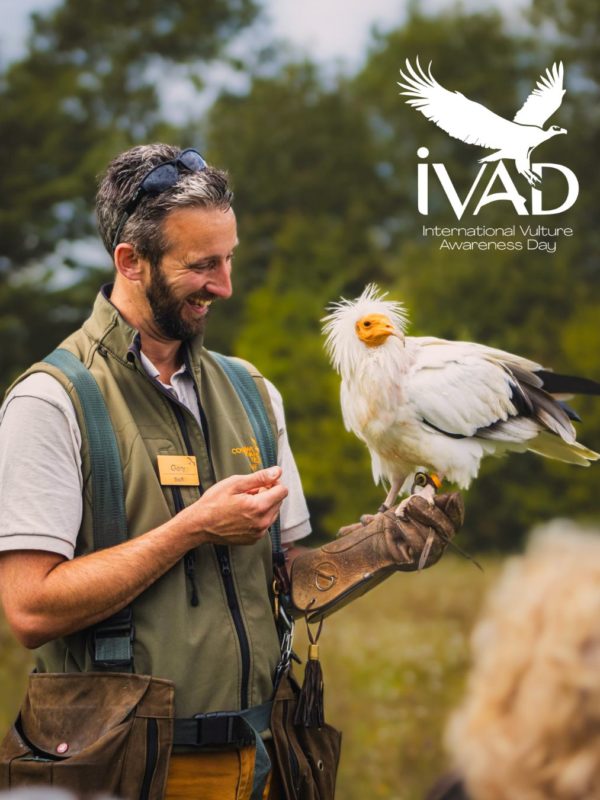
Saturday 5 September
10:00am – 5:30pm
The first Saturday in September each year is International Vulture Awareness Day. At the Hawk Conservancy Trust we love vultures so every day is vulture awareness day! If you would like to celebrate these incredible birds, join us on the first Saturday in September to learn more about vultures and why we need them.
We will be shining a spotlight on these incredible birds with even more vultures in our fantastic flying demonstrations than any other day. Plus, visit our investigation station for free activities and competitions running throughout the day. We will also have vulture-themed products available from the shop and we’ll be fundraising for vital conservation work!
As part of a booked day visit, all of our extra activities running International Vulture Awareness Day are free! Pre-book your ticket now to join us on this special day.
As a group, vultures are the most threatened birds in the world – many populations are under pressure and some species are facing the very real risk of extinction. These birds are vital to our eco-systems. We know them endearingly as ‘nature’s clean-up crew’ – clearing carcasses from landscapes. But they are so much more than this: vultures are dedicated partners and devoted parents, birds that form deep bonds and, as many of you will have experienced at the Trust, have big personalities.
Take a look below at just some of our work with vultures:
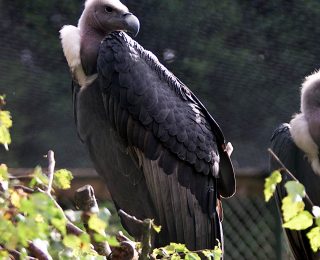
The Pakistan Vulture Restoration Project (PVRP) is a joint initiative between the Hawk Conservancy Trust and WWF-Pakistan. It started in 2005 and is based at a conservation breeding centre about 50 miles southwest of Lahore, in the Punjab Province of Pakistan. The breeding centre holds a secure colony of Asian White-backed Vultures. A second project site is located in Sindh Province, southeast Pakistan, and protects two important breeding colonies – White-backed Vultures and Long-billed Vultures – in what is termed a ‘Vulture Safe Zone’. Work in the safe zone is aimed at improving local livelihoods as well as protecting vultures.
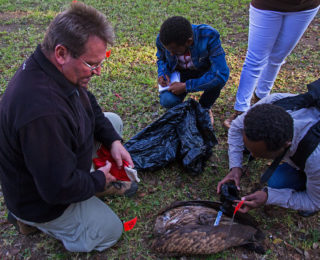
Poisoning is the biggest threat facing vulture populations in Africa, and it has increased rapidly with the ongoing slaughter of elephants for the illegal ivory trade. Poisoning associated with ivory poaching now accounts for one third of all vulture poisonings since 1970 and is currently the biggest cause of vulture mortality.
In the firefight to avoid another continental vulture crisis, and the very real threat of extinction, we are equipping rangers with Poison Response Kits. These kits contain a range of equipment and first aid materials and are designed to reduce the impacts of poisoned carcasses on wildlife. Often, poisons are so toxic that vultures can die with food still in their mouths. This means that work must take place as soon as possible to prevent further deaths. With a quick response and the effective use of Poison Response Kits, hundreds of vultures and other wildlife can be saved from death by poisoning.
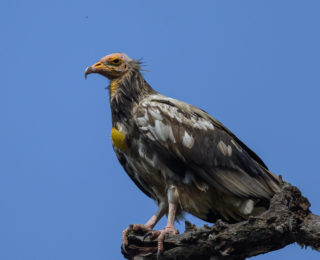
This exciting project is tracking Egyptian Vulture movements in central Asia for the first time ever and we are delighted to be involved. This invaluable research will help us to understand more about this Endangered species and how we can ensure its survival in central Asia. Field work takes place in Uzbekistan, which is at the crossroads of two major migration flyways used by many bird species, so research on migration routes and the major threats along those routes is beneficial for a number of birds of prey and other species using the flyways.
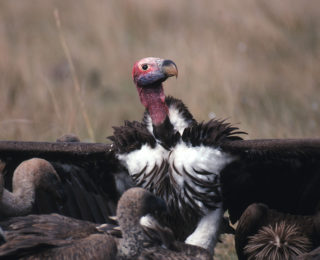
This project is looking at ways to protect nest trees for the Endangered Lappet-faced Vulture. Elephants regularly browse, damage or push over the favourite nesting trees of these vultures, leading to large breeding territories becoming unavailable. The project will identify potential methods to help protect these vital nest sites with fieldwork taking place in Kruger National Park, South Africa, where the number of Lappet-faced Vulture nests has declined by 35% in recent years. This decline in nests is likely to be continuing in Kruger and elsewhere, with Lappet-faced Vultures potentially soon being categorised as Critically Endangered.
International Vulture Awareness Day has grown from Vulture Awareness Days that were started by the Hawk Conservancy Trust and the Birds of Prey Programme of the Endangered Wildlife Trust who worked together to expand the initiative into an international event with hundreds of participants across the globe.
Organisations including zoos, wildlife parks and conservation organisations can sign up to take part in IVAD by sharing their planned activities on the IVAD website. The aim is for each participating organisation to carry out their own activities that highlight vulture conservation and awareness. The website provides a central place for participants to share their activities with the vulture conservation community, and learn about the activities of their colleagues. If you are part of an organisation that would like to celebrate IVAD with us, please sign up on the website to share your vulture awareness activities!
Here at the Hawk Conservancy Trust, we will be celebrating vultures with even more vultures in our fantastic flying demonstrations and plenty of other vulture-themed activities throughout the day. We will also have vulture-themed products available from the shop and we’ll be fundraising for vital conservation work!
IVAD activities are all FREE as part of a booked day visit: book your tickets now!
